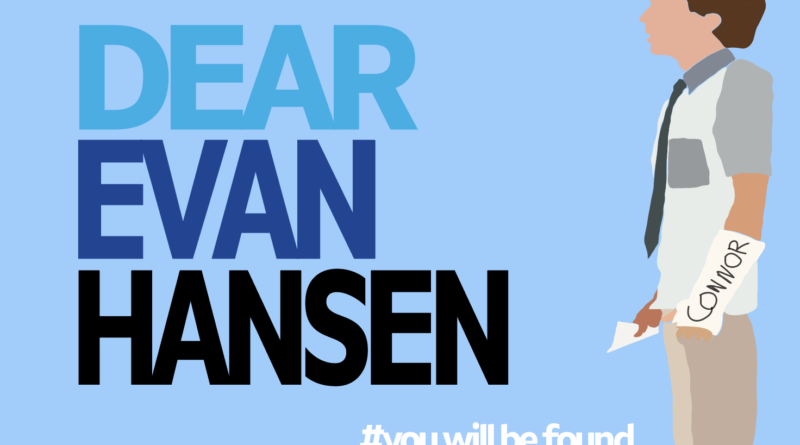“Dear Evan Hansen” and guilt
Feeling alone is a common obstacle many teens and adults face. The novel, “Dear Evan Hansen” by Val Emmich, Benj Pasek, Steven Levenson, and Justin Paul talks about the struggles of loneliness. This book also deals with sensitive topics such as suicide, anxiety, drugs, and depression. The novel is based on Pasek’s experience of his high school’s reaction to a classmate who committed suicide.
The novel follows Evan Hansen, a socially awkward high schooler whose life changes drastically when Connor Murphy, a classmate, steals a letter he wrote to himself for a therapist’s assignment. Connor commits suicide with the letter in his pocket. His parents mistake Evan as Connor’s best friend. However, he doesn’t deny this, taking advantage of the situation, much like his other classmates, to get validation. This lie snowballs and his guilt grows.
Throughout the book, Evan struggles with society’s standards. He constantly worries about being pictured as a good person rather than being an authentically good person. Through this novel, Evan learns to accept himself and gain courage. I think Evan’s situation was relatable because many people wish to be socially accepted and use others to feel accepted but feel the guilt that comes with it.
I also admire this book because the main character is not morally perfect, like any other human. Many stories paint the main character as a hero, but this book shows the many imperfections of a young adult who is learning, growing, and adapting. Though Hansen is portrayed as anxious and hesitant, he is also impulsive. Hansen is desperate to receive the attention he lacks from school and his family from anyone. Connor’s parents were hopelessly searching for an explanation for Connor’s sudden death. Hansen manipulates Connor’s parents and the people around him by claiming he is Connor’s best friend. He does this because he has never gotten so much attention from anyone. The support and love that Connor’s parents and people from the media provide him aid his anxiety. Even though Evan is aware of the manipulation and guilt, he avoids the truth until the end.
Overall, I rate this book a four out of five. “Dear Evan Hansen” shows how a person with anxiety might feel without stigmatizing mental health issues. I also appreciate Connor’s perspective of the story; how the novel includes his thoughts to ensure his truth –not just Evan’s– is heard. It expresses how everyone wants to be understood, telling readers they are not alone.

